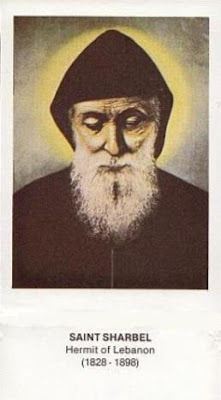Dali - Temptation of St. Anthony
St. Paul VI approved this document in 1975. It's been more or less ignored since then, yet Catholic teaching does not change.
Someone who struggles with masturbation can, by the grace of God, overcome it. Recently a friend of mine revealed to me a personal struggle, and mentioned how Catholic teaching has evolved on sexuality. When I was an adolescent, a confessor distinguished between complete self abuse and incomplete. It seems ludicrous to me today, but perhaps it was an important, albeit immature, for an adolescent back then. I would be surprised if anyone would ask that today, much less teach it, especially since masturbation is often considered by some, to be no longer sinful.
I've always wonder how and why they can say that when from the earliest times it was considered a sin against chastity. St. Peter Damian considered it sodomy, along with the sin of contraception. (Hence my saying we are all Sodomites today.) St. Benedict and St. Francis of Assisi tossed themselves in thorn bushes to avoid the sin. Even the desert fathers and Cassian considered nocturnal emissions as unchaste. (They are involuntary and therefore not sinful of course.) Yet masturbation itself remains a sin to avoid and struggle to overcome. Peacefully and perseveringly.
(Again, I'm only writing about this because of some things confided to me recently. Without going into detail, I believe the change in thinking regarding masturbation had a negative effect in the formation of priests and religious, leading a sexual permissiveness, as seen in the secret lives of priests such as former Cardinal McCarrick, who saw nothing immoral in sleeping naked with seminarians and priests.)
Given in Rome, at the Sacred Congregation for the Doctrine of the Faith, on December 29th, 1975.
The traditional Catholic doctrine that masturbation constitutes a grave moral disorder is often called into doubt or expressly denied today. It is said that psychology and sociology show that it is a normal phenomenon of sexual development, especially among the young. It is stated that there is real and serious fault only in the measure that the subject deliberately indulges in solitary pleasure closed in on self ("ipsation"), because in this case the act would indeed be radically opposed to the loving communion between persons of different sex which some hold is what is principally sought in the use of the sexual faculty.
This opinion is contradictory to the teaching and pastoral practice of the Catholic Church. Whatever the force of certain arguments of a biological and philosophical nature, which have sometimes been used by theologians, in fact both the Magisterium of the Church - in the course of a constant tradition - and the moral sense of the faithful have declared without hesitation that masturbation is an intrinsically and seriously disordered act.[19]
The observance of the moral law in the field of sexuality and the practice of chastity have been considerably endangered, especially among less fervent Christians, by the current tendency to minimize as far as possible, when not denying outright, the reality of grave sin, at least in people's actual lives. - Persona HumanaOf course, like Humanae vitae, many Catholics ignore this teaching. I'm just a simple layman who accepts the teaching of the Church.











